With Selangor polls on horizon, Bangi’s Malay youths’ worry split between economy and power struggle
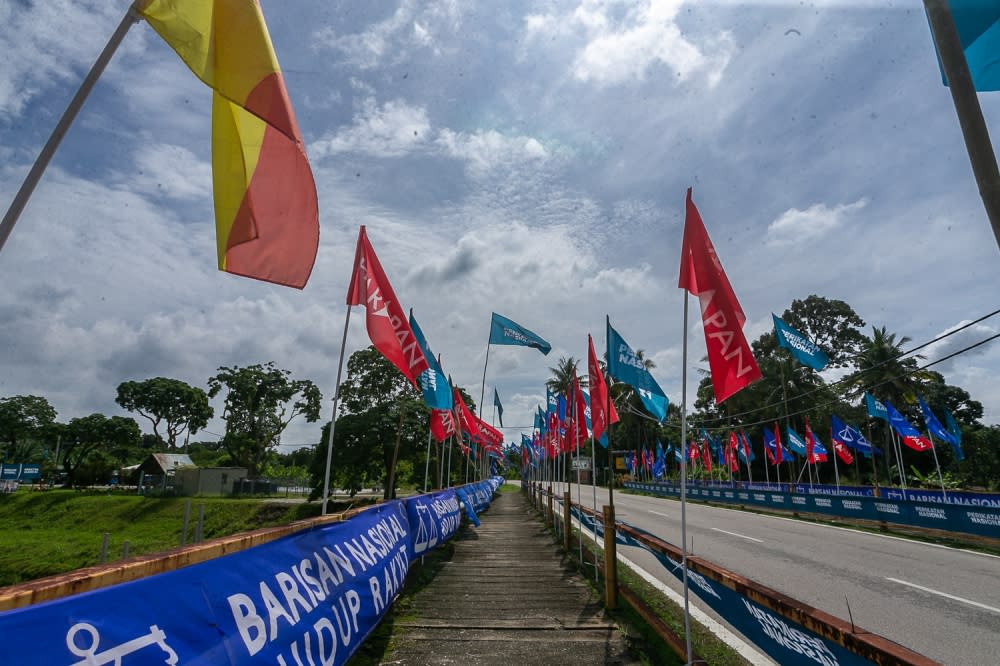
BANGI, July 5 — The oppressive heat of the afternoon made way to refreshing coolness as Hajar crossed into the Kompleks PKNS Bangi mall opposite her workplace for a cheap lunch.
The 27-year-old project manager was dressed simply, in line with the rising cost of living and stagnant wages which she considered her primary concerns.
“I’m most worried about the minimum wage. If you look at prices right now, everything has gone up.
“But wages have remained the same,” she told Malay Mail when met there recently.
Hajar said she had voted for Perikatan Nasional (PN) in the 15th general election (GE15) as she was drawn to the coalition’s promise to develop roads in Bangi, a federal constituency 184 km square in size.
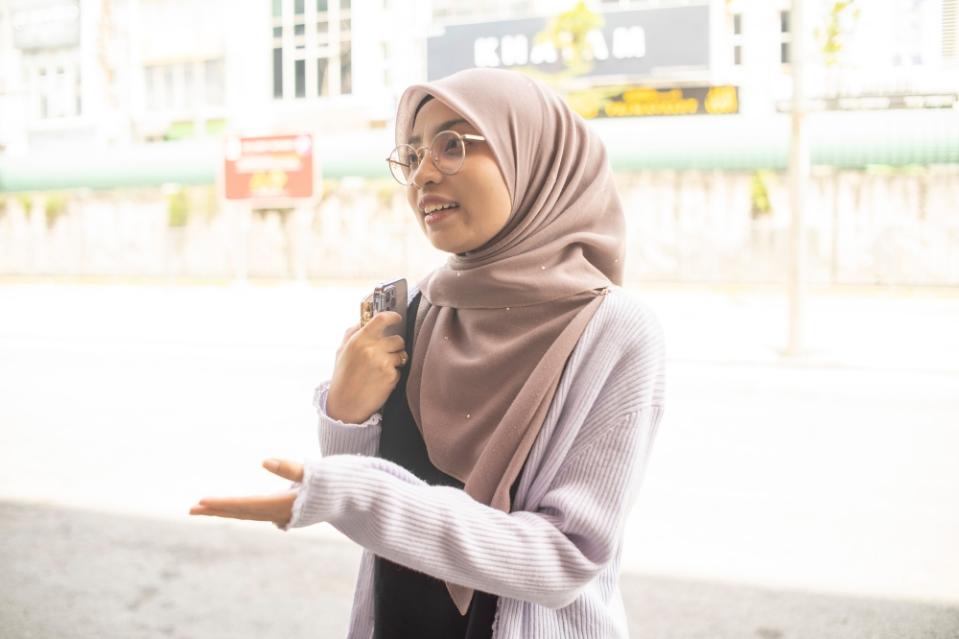
Hajar speaks to Malay Mail during an interview session in Bangi, Selangor, June 15, 2023. — Picture by Shafwan Zaidon
However, she conceded that she might vote for someone else in the upcoming state election if they could address her worries about the economy.
Her worry was intensified by the fact that it was becoming increasingly unsustainable to live on a single salary.
“It’s very hard for even people who earn above RM2,000. Now you have to get a second job or invest your money,” she said.
Prior to 2018, Bangi was a state constituency in Selangor. It has since been renamed Sungai Ramal, with Parti Amanah Negara’s Mazwan Johar winning it in the last state election in 2018 with a convincing 10,630-vote majority.
In the GE15, the Bangi federal constituency — formerly called Serdang — was won by Pakatan Harapan and DAP’s Syahredzan Johan with a 69,701-vote advantage over PN’s Nazrul Nazir from Islamist party PAS.
Outside the complex, a young man was hanging out nearby the entrance, enjoying the shade and the opportunity to indulge in some vaping.
Like Hajar, the 23-year-old calling himself Ahmad worked across the road. When asked about his job, he simply lifted his arm and pointed to a spa housed in a shop lot about 100m away.
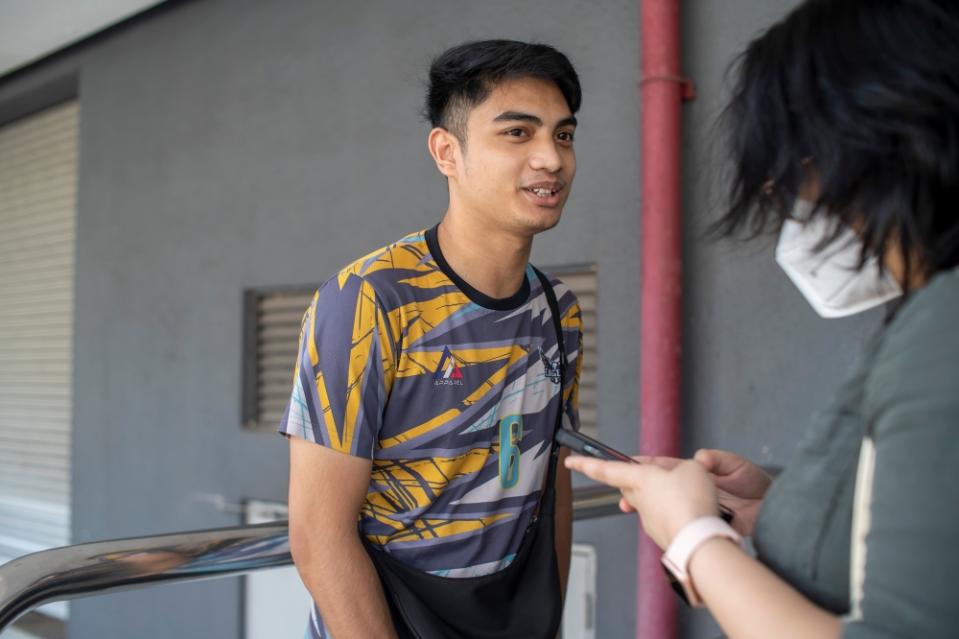
Ahmad is concerned about job mismatches. — Picture by Shafwan Zaidon
He had initially trained to work as a sports physiotherapist but a lack of job opportunities had caused him to settle at his current workplace.
“The economy is a worry, certainly. But within that, there’s the issue of job mismatches,” he said, using himself as an example.
He was not the only one to experience it, he added, noting that he had many friends who had studied and trained for a particular industry, only to pivot elsewhere due to a lack of jobs.
For Nur Faqihah, an 18-year-old who was working in the area while awaiting her place in a university, voting in the coming Selangor state election will be simple: it all depends on which party has the best vision for developing the country.
She said the economy at the moment needed urgent attention, but she looks forward to long-term growth as well.
While economy seemed to be at the top of many respondents’ minds, not all polled by Malay Mail thought that way,
Nur Aliah was tending to her family’s business selling clothes at the Bangi Gateway mall when asked what her top worry was.
Visibly wracking her brains, the 25-year-old dismissed economic concerns — admitting she had never experienced any trouble with job conditions and salaries.
The soft-spoken young woman said she was educated up to the SPM level, and had worked at many of the businesses in the area before her family called upon her to help out with the family business.
“Overall, I think the economy is still okay,” she said.
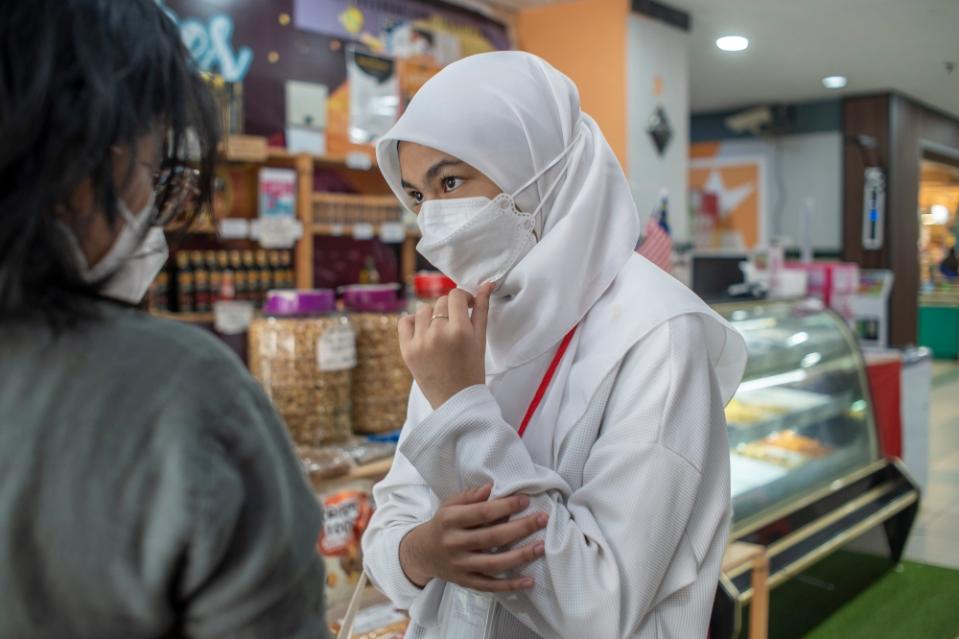
For Nur Faqihah, it all depends on which party has the best vision for developing the country. — Picture by Shafwan Zaidon
On the other hand, 21-year-old law student Nasrul was more concerned with aspects of clean governance and the role of the Opposition in providing a check and balance to the government’s power.
He had voted for PH in GE15, but despite it making up part of the unity government with former political rivals Barisan Nasional (BN), he said it was not a matter of belief in the coalition but one of principle.
“The enforcement of the Opposition’s jurisdiction should be enhanced so that both parties get to be kept in check,” he said.
Following the alliance between PH and BN at the federal level, outgoing menteri besar Datuk Seri Amirudin Shari had then announced that Umno and BN state assemblymen were counted as part of the Selangor government led by PH.
The two coalitions will join forces in the six state elections, including in Selangor.
Nasrul’s friend Qasim, 21, found it difficult to pick out any one issue as the most important, especially when it came down to selecting a candidate based on their policies.
Gripped by what he described as a sort of “political paralysis” from watching different parties clamour to crown their championed issue as the most important, he said he prefers to stay silent and remain an observer.
“I can’t say that I support any one issue because there will always be many voices in opposition to that one issue being the most important,” he said.
This was reflected in how he voted in GE15 as he had picked an independent candidate to back due to the feeling that none of the established parties had a strong political narrative in how they wished to tackle issues.
“In a way, it’s because I did not see any candidate that I could believe in,” he commented.

Qasim prefers to stay silent and remain an observer. — Picture by Shafwan Zaidon
According to the national news agency Bernama, Bangi is Malaysia’s most populous state constituency with around 691,900 people who reside there.
Further, Department of Statistics Malaysia (DoSM) data on its portal Kawasanku showed that the ethnic breakdown of Bangi’s population is comparable to national demographics, with 62.2 per cent of residents classified as Bumiputera, 28.7 per cent are Chinese, 8.4 per cent Indians, and 0.6 per cent as others.
This has led to Bangi being viewed as a microcosm of Malaysia as a whole.
Besides Sungai Ramal, there are two other state seats under Bangi: Balakong and Seri Kembangan.
In 2018, DAP’s Ng Tien Chee won Balakong with a 35,538-vote majority, while party-mate Ean Yong won Seri Kembangan with a 31,145-vote majority.
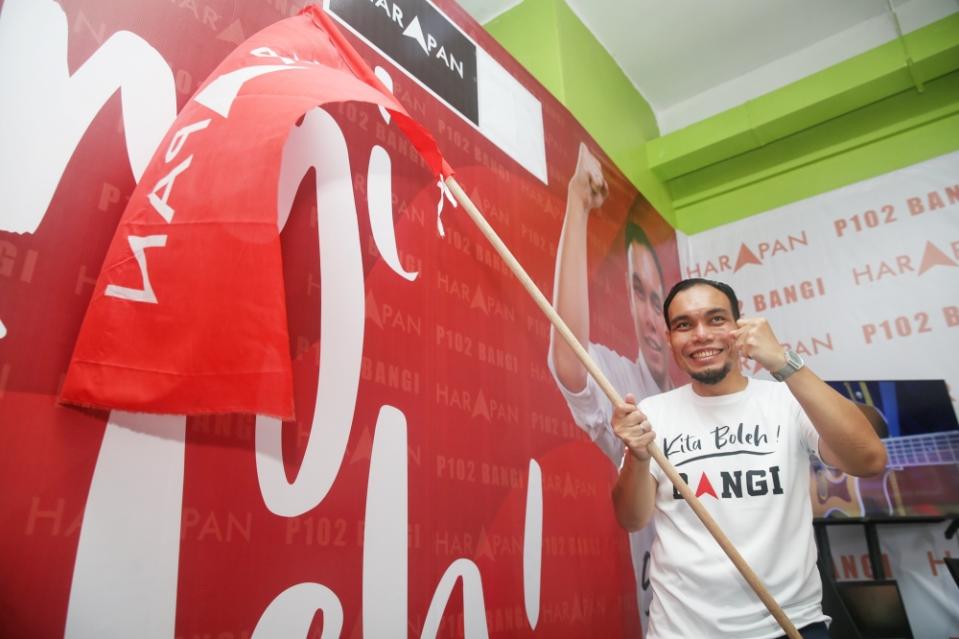
DAP candidate for Bangi Syahredzan Johan at the DAP Bangi ops centre P102 at Bandar Baru Bangi, Selangor, November 3, 2022. — Picture by Choo Choy May
In last year’s general election, Syahredzan won Bangi in a heated eight-sided contest that also saw two of his opponents — PAS’ Nazrul, formerly a special officer for ex-religious affairs minister Datuk Zulkifli Mohamad, and Gerakan Tanah Air’s Annuar Salleh from PAS’ splinter party Berjasa who was formerly the Hulu Langat chief of controversial Islamist group Ikatan Muslimin Malaysia (Isma) — playing the racial and religious cards during campaigning.
The 14th Selangor state assembly with its 56 seats was officially dissolved on June 23 following the consent of the Sultan of Selangor Sultan Sharafuddin Idris Shah.
Selangor is one of the six states to hold their state elections after the 15th general election was held in November last year. The other five states are Negeri Sembilan, Penang, Kedah, Kelantan and Terengganu.



